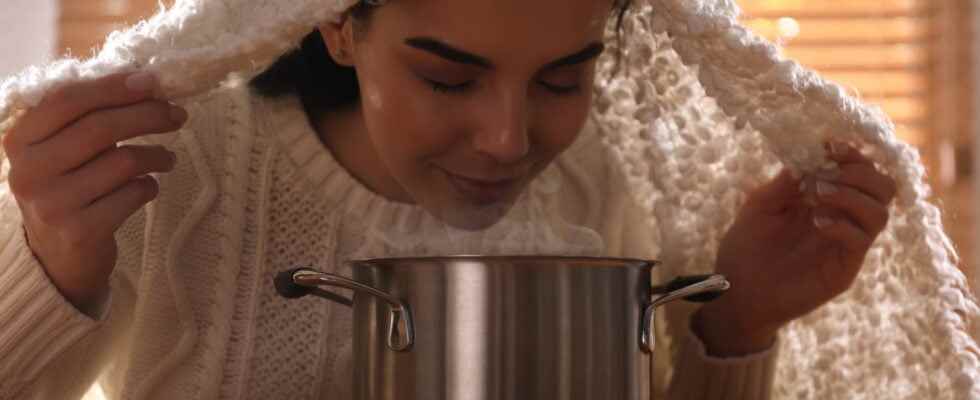Balsolene is a medicine indicated as a nasal decongestant during common respiratory ailments (colds, rhinitis, nasopharyngitis) in adults and children over 12 years old. “Balsolène should not be swallowed, but inhaled” recalls the National Agency for the Safety of Medicines and Health Products (ANSM) on February 7.
On February 7, 2022, theNational Agency for the Safety of Medicines and Health Products (ANSM) alert on Balsolene administration route errors. She recalls that “Balsolene nasal decongestant should not be swallowed, but inhaled“and to recall”to patients that the mode of administration of Balsolène is done by fumigation: the solution must be placed in a bowl of hot water or in a plastic inhaler”. This drug is indicated as decongestant during common respiratory ailments (colds, rhinitis, nasopharyngitis) in adults and children over 12 years old. “Cases of medication errors with this medicine have been reported to us. These errors consist of accidental ingestion of the product by confusion with, most often, an antitussive syrup, in particular following the concomitant delivery of these 2 products. The side effects reported are oropharyngeal irritation and gastric pain” warns the ANSM. In order to improve the readability of the route of administration, the box and the labeling of Balsolène will soon be modified: the mention “Do not swallow“will be listed in larger quantities, the Agency specifies. Balsolène is sold in pharmacies. Balsolène is composed of benzoin from Laos, said from Siam, essential oil of niaouli and eucalyptus and levomenthol. This drug is not reimbursable, and its price is free according to the public drug database of the Ministry of Health. To use Balsolene, pour a teaspoon of solution into a bowl of very hot but not boiling water and inhale the vapours. Repeat the inhalations 3 times a day. In terms of contraindications, you should not take Balsolène in the event of hypersensitivity to one of the constituents, or in the event of a history of convulsions (febrile or not) for children. “This specialty contains terpene derivatives (eucalyptus, niaouli, levomenthol) which can lead to excessive doses: seizure-type accidents in infants and children, pauses in breathing and collapse in infants“ warns the Ministry of Health. “In case breastfeeding, it is best not to use this medication in case of breastfeeding due to the absence of kinetic data on the passage of terpene derivatives in milk and their potential neurological toxicity in infants.
